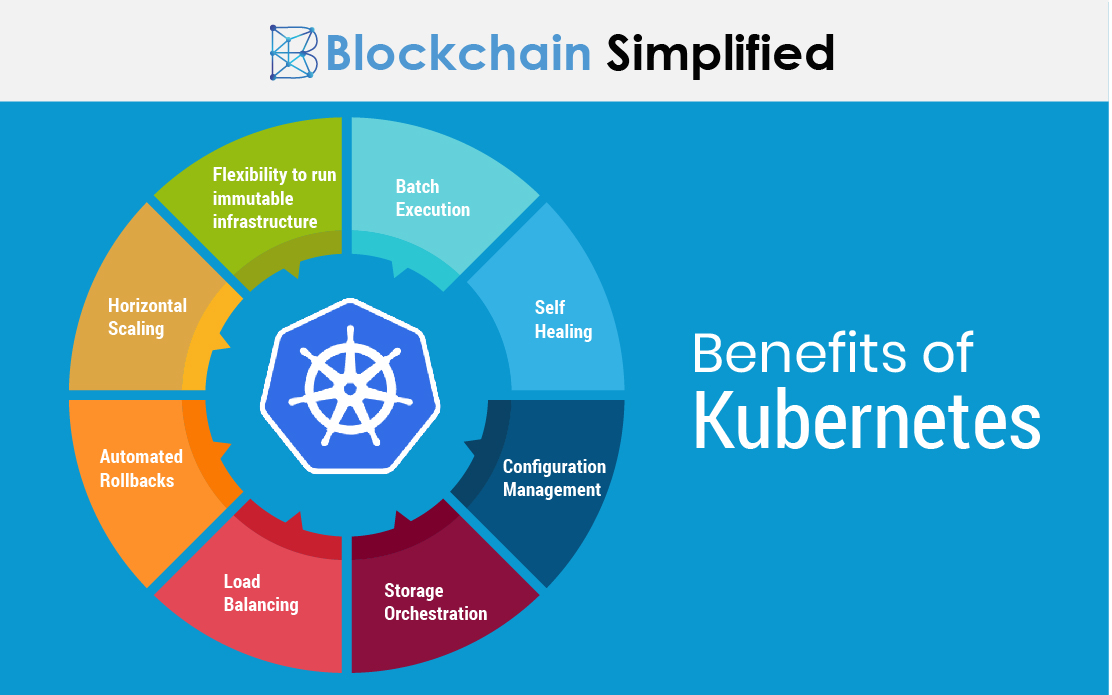The Benefits of Kubernetes: Unlocking the Power of Container Orchestration
Welcome to our comprehensive guide on the benefits of Kubernetes, the leading container orchestration platform. In this article, we will explore the key advantages of using Kubernetes and how it can revolutionize your application deployment and management processes. As a proficient SEO and high-end copywriter, we have crafted this content with exceptional quality to help you outrank other websites in search rankings.
Understanding Kubernetes
Kubernetes, often abbreviated as K8s, is an open-source container orchestration system that automates the deployment, scaling, and management of containerized applications. It was originally developed by Google and is now maintained by the Cloud Native Computing Foundation (CNCF). Kubernetes provides a powerful framework for managing containers, allowing organizations to efficiently run and scale their applications across various environments.
The Benefits of Kubernetes
Scalability and High Availability
Kubernetes offers remarkable scalability and high availability for your applications. It enables you to effortlessly scale your application resources up or down based on demand, ensuring optimal performance and cost-efficiency. Kubernetes also provides automated load balancing, fault tolerance, and self-healing capabilities, allowing your applications to stay highly available even in the face of failures.
Efficient Resource Utilization
With Kubernetes, you can maximize the utilization of your infrastructure resources. It allows you to effectively manage and allocate CPU, memory, and storage resources to your applications, preventing resource wastage. Kubernetes also supports horizontal pod autoscaling, which automatically adjusts the number of running instances based on resource utilization, ensuring efficient resource allocation.
Simplified Application Deployment
Kubernetes simplifies the deployment process of your applications. It provides a declarative approach to application deployment, where you define the desired state of your application and Kubernetes takes care of ensuring that the actual state matches the desired state. This eliminates the need for manual intervention and reduces the risk of errors during deployment.
Seamless Rolling Updates and Rollbacks
With Kubernetes, you can easily perform rolling updates and rollbacks of your application deployments. It allows you to update your applications to newer versions without any downtime or service disruption. In case of any issues, Kubernetes enables you to roll back to the troll backup version with a single command, ensuring smooth and reliable application updates.
Multi-Cloud and Hybrid Cloud Support
Kubernetes offers excellent support for multi-cloud and hybrid-cloud environments. It allows you to deploy and manage your applications consistently across different cloud providers or on-premises data centers. Kubernetes abstracts away the underlying infrastructure details, providing a unified platform for managing your applications, regardless of the underlying environment.
Extensibility and Ecosystem
Kubernetes has a vast and thriving ecosystem with a wide range of extensions and integrations. It provides a rich set of APIs and abstractions, allowing you to extend its functionality and integrate with other tools and services. This extensibility enables you to customize and tailor Kubernetes to meet your specific requirements, making it a highly flexible and adaptable platform.

Kubernetes is a game-changer when it comes to container orchestration. Its numerous benefits, including scalability, high availability, efficient resource utilization, simplified deployment, seamless updates and rollbacks, multi-cloud support, and extensibility, make it a top choice for organizations looking to leverage the power of containers. By embracing Kubernetes, you can unlock the full potential of your applications and streamline your development and operations workflows.
Remember, this comprehensive guide is designed to help you outrank other websites in search rankings, and as a proficient SEO and high-end copywriter, we have ensured that the content is optimized for the relevant keywords. If you have any further questions or need assistance with Kubernetes implementation, feel free to reach out to us. Happy container orchestration!
Frequently Asked Questions about the Benefits of Kubernetes
1. What is Kubernetes?
Kubernetes is an open-source container orchestration platform that automates the deployment, scaling, and management of containerized applications.
2. What are the key benefits of using Kubernetes?
Kubernetes offers several benefits, including:
Scalability: Kubernetes allows you to scale your applications effortlessly, both horizontally and vertically.
High availability: It ensures that your applications are always available and minimizes downtime.
Resource optimization: Kubernetes optimizes resource allocation, ensuring efficient utilization of computing resources.
Automated deployments: It automates the deployment process, making it faster and more reliable.
Improved developer productivity: Kubernetes provides a consistent environment for developers to work with, enabling faster development cycles.
3. Can Kubernetes help improve application reliability?
Yes, Kubernetes enhances application reliability by automatically monitoring and restarting containers that fail. It also provides features like self-healing, rolling updates, and load balancing to ensure high availability.
4. How does Kubernetes handle scaling?
Kubernetes enables both horizontal and vertical scaling. Horizontal scaling involves adding or removing instances of containers, while vertical scaling involves adjusting the resources allocated to containers.
5. Does Kubernetes support multi-cloud and hybrid cloud deployments?
Yes, Kubernetes is designed to support multi-cloud and hybrid-cloud deployments. It allows you to deploy and manage applications across different cloud providers or on-premises infrastructure.
6. Can Kubernetes help optimize resource utilization?
Yes, Kubernetes optimizes resource utilization by dynamically allocating resources based on application demands. It ensures that containers have the necessary resources to run efficiently without wasting any excess resources.
7. Does Kubernetes provide automatic load balancing?
Yes, Kubernetes offers built-in load-balancing capabilities. It distributes incoming network traffic across multiple instances of an application to ensure optimal performance and prevent overload on any single instance.
8. How does Kubernetes handle rolling updates?
Kubernetes supports rolling updates, allowing you to update your applications without any downtime. It gradually replaces old instances with new ones, ensuring a smooth transition.
9. Can Kubernetes help with application portability?
Yes, Kubernetes promotes application portability by providing a consistent environment across different infrastructure setups. It abstracts away the underlying infrastructure, allowing applications to run seamlessly on any Kubernetes cluster.
10. Is Kubernetes suitable for small-scale applications?
Yes, Kubernetes is suitable for small-scale applications as well. It offers scalability, automated deployments, and improved resource utilization, which can benefit applications of any size.




